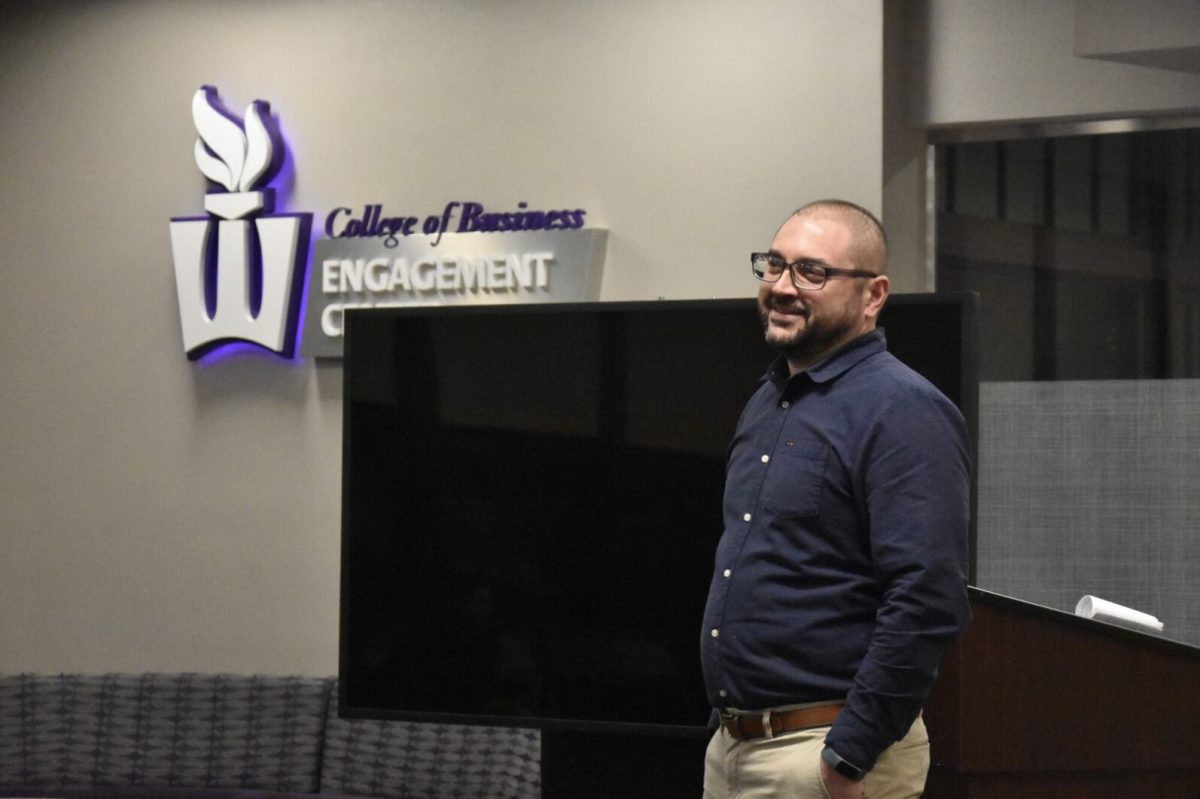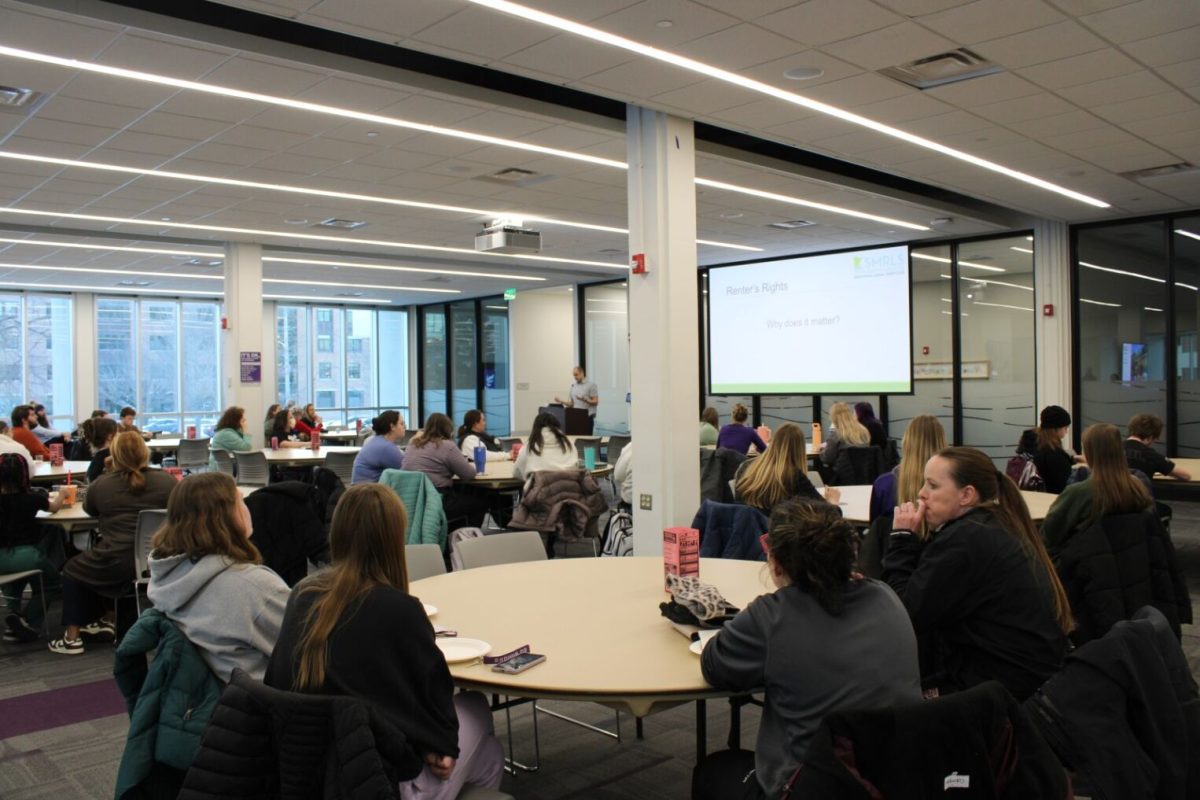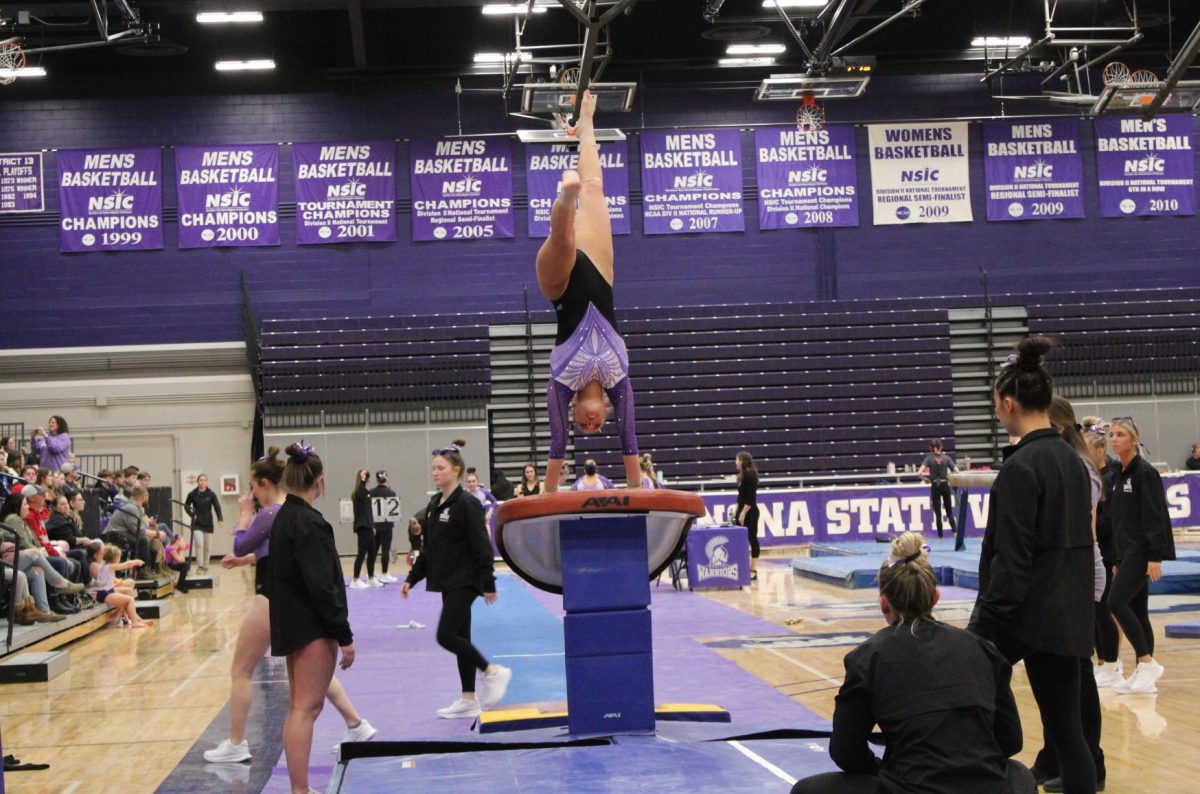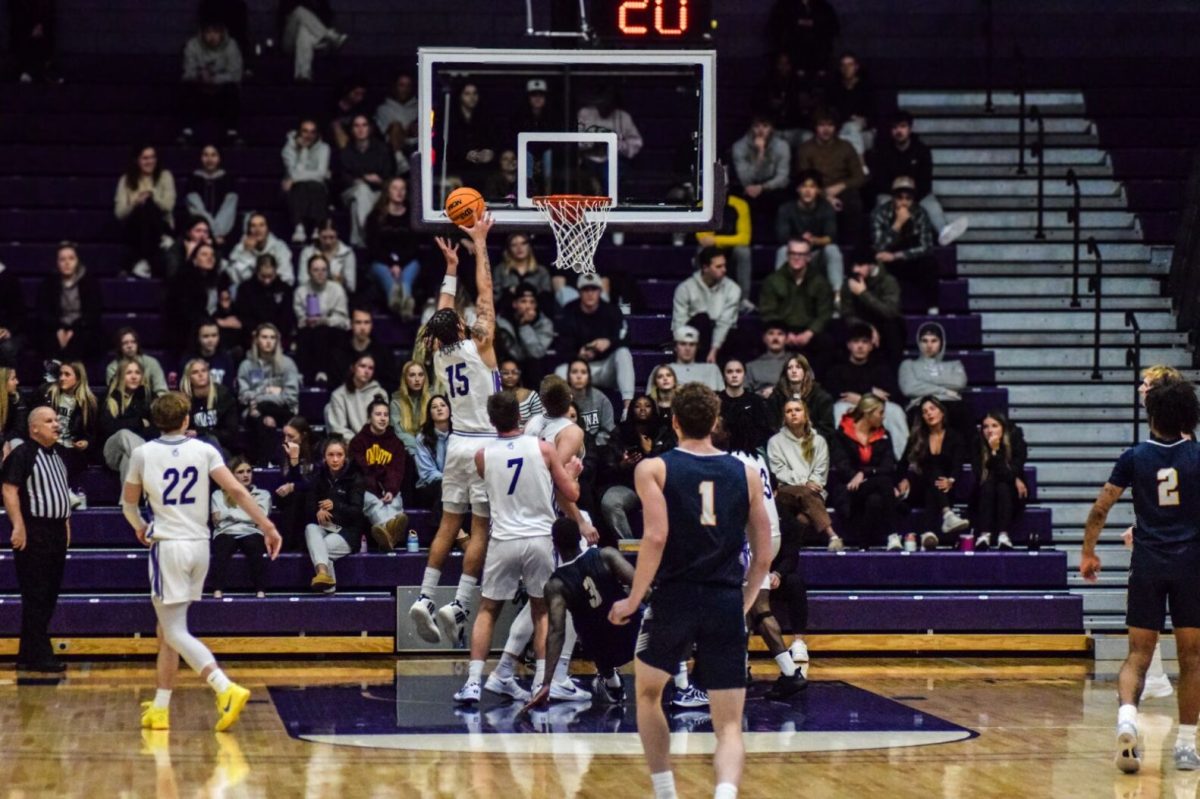
Nathaniel Nelson/Winonan
Paul Johnson, professor of film studies and English at Winona State University, hosted a CLASP lecture Wednesday, Oct. 28 to discuss the controversy surrounding the film American Sniper.
The 2014 film, directed by Clint Eastwood, tells the story of U.S. Navy sniper Chris Kyle. Kyle served four tours in Iraq and Afghanistan and became the deadliest sniper in U.S. military history with over 160 confirmed kills. In 2013, Kyle was killed at a gun range by a veteran suffering from PTSD.
Over the past six months, the film has gained notoriety among college campuses for controversy surrounding its depictions of Muslims.
According to Johnson, at least seven separate showings of the film have been protested by the Muslim students on their respective campuses.
“The film represents MENA and Muslim characters only as killers, insurgents, terrorists and villains,” Johnson said.
Junior Luke Peacock, who attended the lecture, said that while he found Johnson’s points to be informative, he has some misgivings about the true meaning of the film.
“I understand where the controversy comes from, but I honestly think that it was more about the effects that war has on someone and how it doesn’t affect just the men and women in the military,” Peacock said. “I also think that it was a lot about PTSD and how it affects not just the person who has it.”
Junior film studies student Jake Nielsen said the lecture alerted him to the problems in the film’s Muslim depiction.
“Initially when I did see the film, I didn’t really think that it was anti-muslim,” Nielsen said. “However, seeing the presentation, I hadn’t realized that there was only one Muslim family in the movie that was portrayed as good. I never really saw how one-dimensional every Muslim character was.”
It is this lack of positive Muslim depiction that allowed “American Sniper” to gain its notoriety, Nielsen said.
“While I understand that the film is taking place in a foreign country where the rebel units are overwhelmingly Muslim, I think that it’s a bit unfair to make it seem that everyone is our enemy over there,” Nielsen said. “That just leads to more of the horrendous Islamophobia that we’ve been seeing nowadays.”
Eastwood, according to Johnson, made some changes to the plot of Kyle’s autobiography. Events occurred out of order, or were even fabricated for the sake of a more coherent and interesting plot.
Nielsen said this was one of the most prominent takeaways from the lecture.
“As he pointed out, some of the biggest moments in the movie were complete fabrications,” Nielsen said. “It’s also worth noting that, in my opinion, they made Chris into a much more likable person. They got rid of all the explicit hostility that he had towards the Muslims that was very present in the book.”
Johnson said discussion of the film can be a positive experience for cultural inclusivity on college campuses.
“I hope the discussion of Sniper is relevant to WSU because we aim to be an inclusive, welcoming community,” Johnson said. “If and when our popular culture depicts non-Americans in general or Muslims specifically as evil insurgents and terrorists, it’s worth everyone’s while to examine and discuss how our international students then see the U.S. as a country and a culture both.”









































